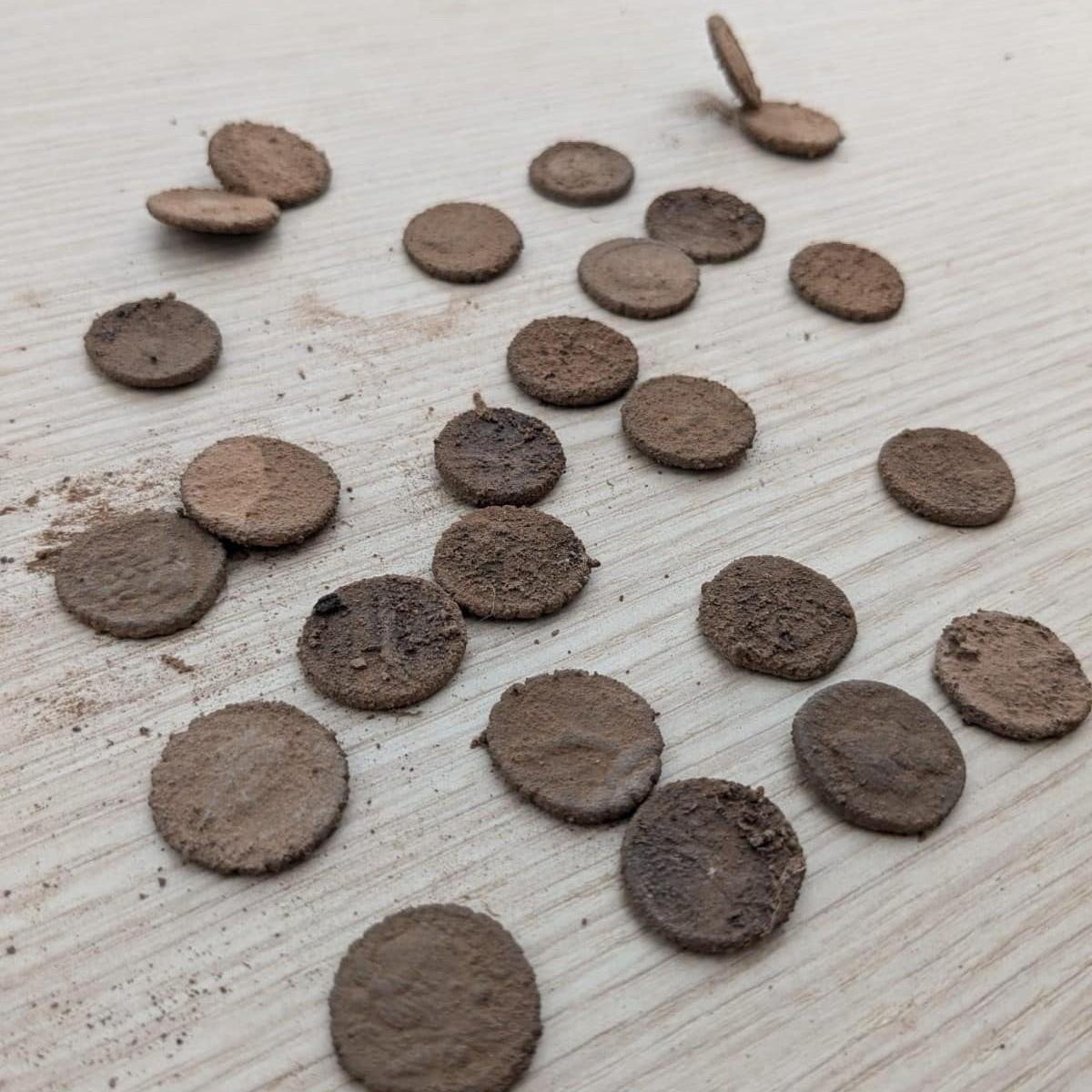Archaeologists have uncovered a cache of 27 ancient Roman silver coins on the Mediterranean island of Pantelleria, located between Sicily and Tunisia.
 The cache of ancient Roman silver coins discovered on the Mediterranean island of Pantelleria. Credit: Parco Archeologico di Selinunte, Cave di Cusa e Pantelleria
The cache of ancient Roman silver coins discovered on the Mediterranean island of Pantelleria. Credit: Parco Archeologico di Selinunte, Cave di Cusa e Pantelleria
The discovery was made during restoration work at the Acropolis of Santa Teresa and San Marco, a site of immense historical value. The coins, dating from between 94 and 74 BCE during the Roman Republic era, were found hidden in a hole in the wall, with some exposed after recent rains loosened the soil. The remaining coins were uncovered beneath a boulder.
The archaeological team, led by Thomas Schäfer from the University of Tübingen in Germany, made the find in the same area where 107 similar silver denarii were unearthed in 2010. Schäfer, who has been excavating the site for 25 years, described the Acropolis as “a wonderful site, fortunately intact … (and) never touched over the centuries.” The coins are believed to have been hidden during one of the frequent pirate attacks that plagued the region during this period, a theory Schäfer supports, noting that pirates often raided coastal settlements, forcing locals to conceal their valuables.
These silver denarii were a standard Roman currency, used for centuries across the empire. Each denarius was worth about a day’s wage for a Roman soldier, roughly equivalent to $20 in today’s terms. The site of the discovery also holds significant historical importance, having previously yielded the heads of three Roman statues: Julius Caesar, the emperor тιтus, and a woman who may have been Agrippina the Elder or Antonia the Younger. These statues are currently displayed in prestigious insтιтutions, including the British Museum and the Salinas Museum in Palermo.
 One of the denarii found at Pantelleria. Credit: Parco Archeologico di Selinunte, Cave di Cusa e Pantelleria
One of the denarii found at Pantelleria. Credit: Parco Archeologico di Selinunte, Cave di Cusa e Pantelleria
Felice Crescente, director of the Archaeological Park of Selinunte, Caves of Cusa, and Pantelleria, added that the discovery is not only about the coins themselves but also about the broader connections to historical events and figures.
The discovery offers archaeologists and historians a deeper understanding of the Roman Republic, particularly its economic and political structure, as well as the turbulent times marked by pirate raids before Pompey the Great’s defeat of the Mediterranean pirates in 67 BCE.
Parco Archeologico di Selinunte, Cave di Cusa e Pantelleria





